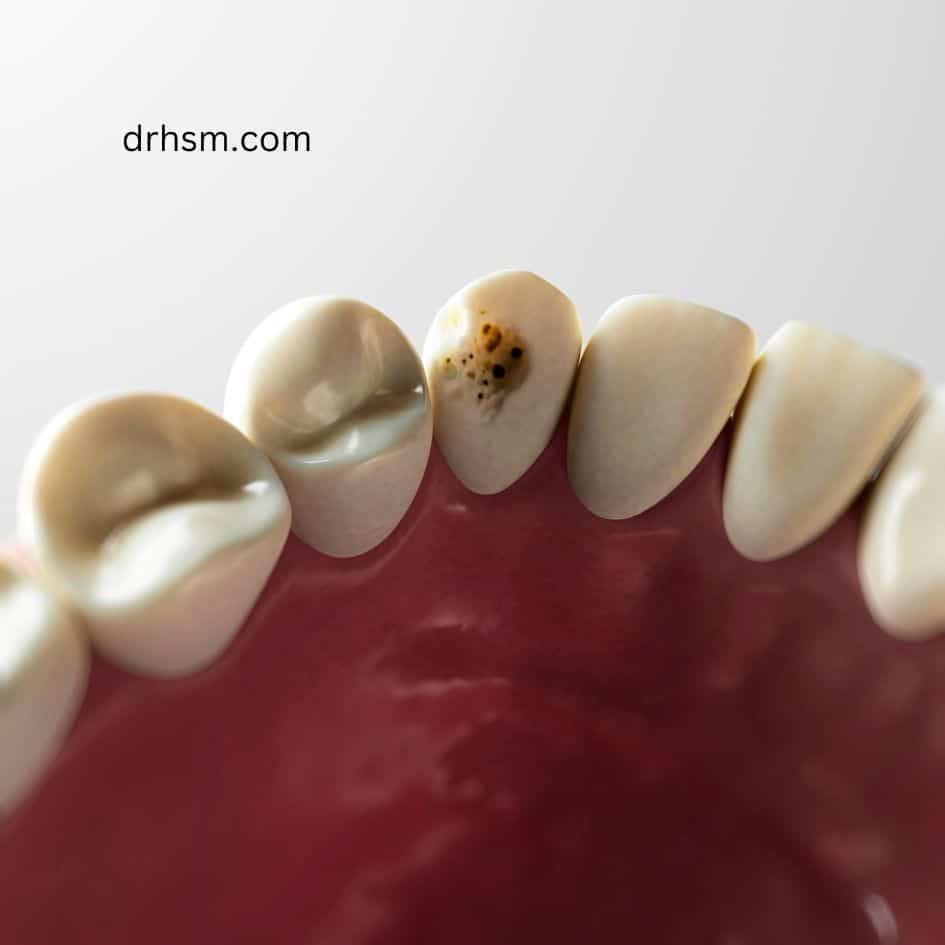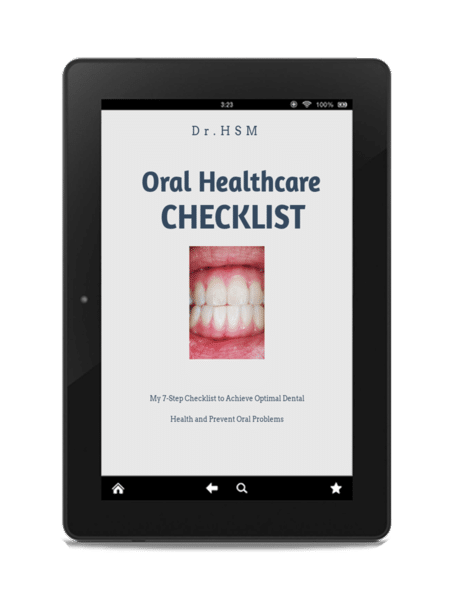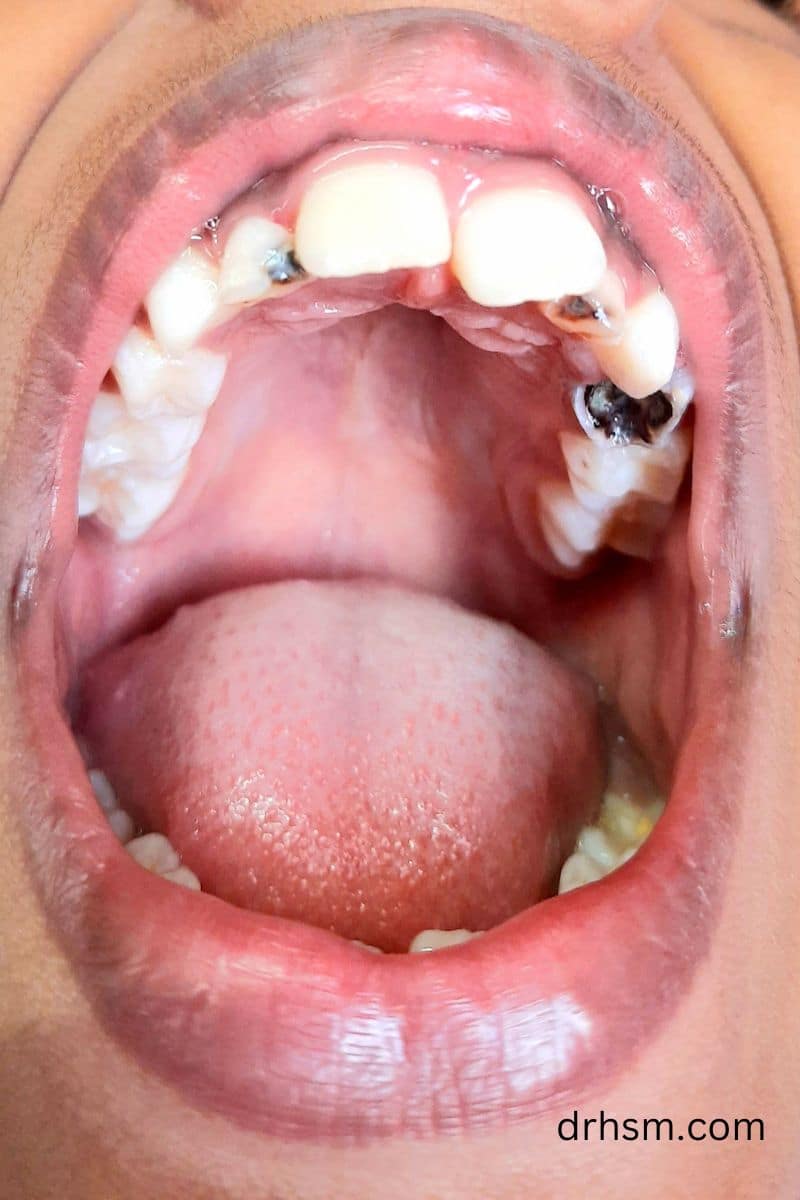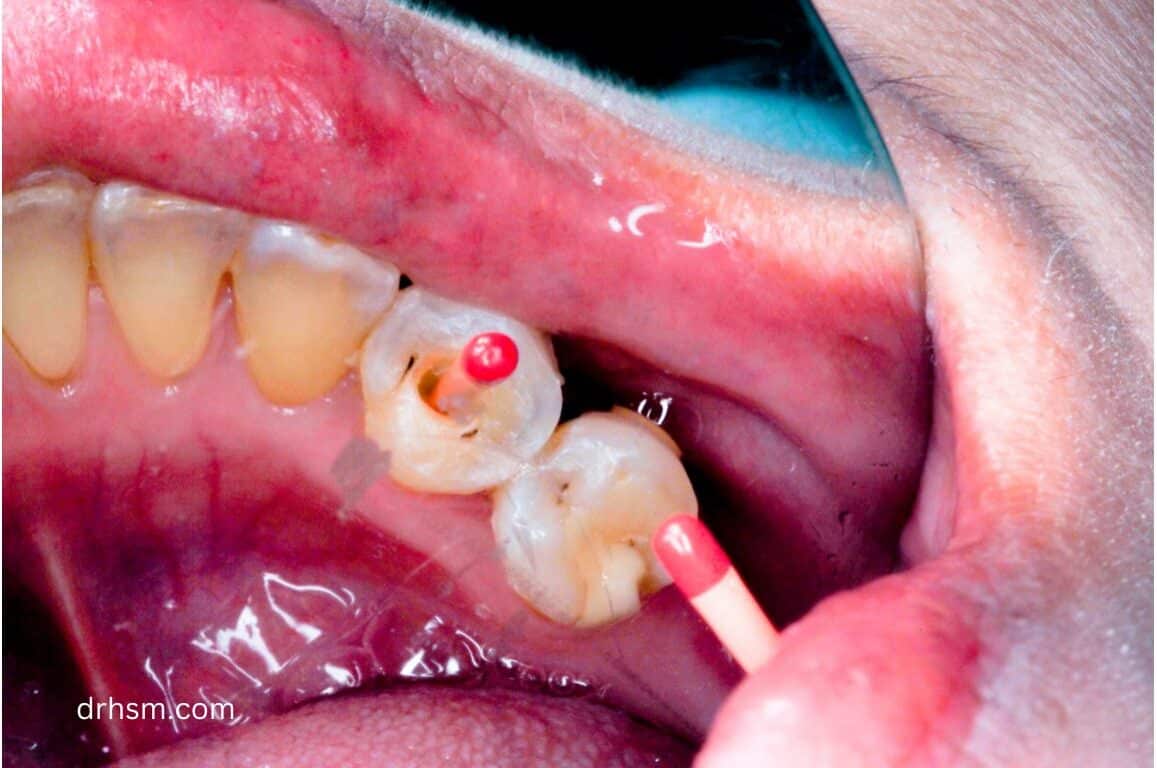Cavities are a common dental problem that can affect any tooth in your mouth, including your front teeth. A cavity, also known as tooth decay, is a small hole that develops in your tooth as a result of bacterial growth.
If left untreated, cavities can become larger and cause pain, infection, and even tooth loss. In this article, we'll explore the causes of cavities on front teeth, treatment options, and prevention tips.

Causes of Cavities on Front Teeth
Discover My Ultimate Checklist for Maintaining Healthy Teeth and Gums on a Daily and Weekly Basis
From Brushing to Flossing: Follow My 7-Step Checklist to Achieve Optimal Dental Health and Prevent Oral Problems.

Cavities on front teeth can develop for several reasons, including:
Poor Oral Hygiene: Not brushing and flossing regularly can lead to the buildup of plaque, a sticky film of bacteria that can erode your tooth enamel and cause cavities.
Sugary and Acidic Foods and Drinks: Consuming sugary and acidic foods and drinks can create an acidic environment in your mouth, which can contribute to the formation of cavities.
Dry Mouth: Saliva plays an important role in neutralizing acid in your mouth and protecting your teeth. If you have a dry mouth, your risk of developing cavities increases.
Genetics: Some people may be more susceptible to cavities due to genetics.
(If you are suffering from cavities you can check out my another post on Say Goodbye to Tooth Decay: The Ultimate Guide to Choosing the Best Toothpaste.)
Why You Shouldn't Ignore Cavities?
Ignoring cavities on front teeth can have serious consequences for your dental health and overall well-being. Left untreated, cavities can spread to other teeth and cause further decay, infection, and even tooth loss.
In addition to the physical symptoms, cavities can also affect your self-confidence and social life, as they may cause discoloration or visible damage to your front teeth.
Seeking prompt treatment for cavities on front teeth is essential for preventing further damage and maintaining a healthy, beautiful smile.
By taking care of your teeth and seeking regular dental checkups, you can catch and treat cavities early on, and enjoy a lifetime of good oral health.
How to tell if you have cavities on front teeth?

One of the best ways to tell if you have cavities on your front teeth is to pay attention to any changes in your tooth's appearance or texture. For example, you may notice white or brown spots on the surface of your tooth, or a rough or pitted texture.
You may also experience sensitivity or pain when consuming hot, cold, or sweet foods or drinks. If you suspect that you may have a cavity on your front tooth, it's important to schedule an appointment with your dentist as soon as possible to prevent the cavity from becoming more serious.
Your dentist can conduct a thorough examination and recommend the best course of treatment based on your individual needs.
Treatment Options for Cavities on Front Teeth
If you have a cavity on your front tooth, your dentist may recommend one of several treatment options, depending on the severity of the cavity:
Dental Fillings: Dental fillings are a common treatment for cavities. During the procedure, your dentist will remove the decayed portion of your tooth and fill the cavity with a dental filling material.
Dental Bonding: Dental bonding is a cosmetic dental treatment that can also be used to treat cavities. During the procedure, your dentist will apply a tooth-colored resin to the affected area of your tooth and cure it with a special light. This resin bonds to your tooth and restores its appearance and function.
Dental Crowns: If your cavity is severe, your dentist may recommend a dental crown. A dental crown is a cap that covers your tooth and restores its shape, size, and strength.
Root Canal: If your cavity has reached the pulp of your tooth, your dentist may recommend a root canal. During the procedure, your dentist will remove the infected pulp and replace it with a filling material.

Is Cavity Treatment Painful?
Many people worry that cavity treatment will be painful, but with modern dental techniques and local anesthesia, most cavity treatments are painless. Your dentist will use a local anesthetic to numb the affected area of your mouth, so you won't feel any pain during the procedure.
Prevention Tips for Cavities on Front Teeth
Preventing cavities on front teeth starts with good oral hygiene. Here are some tips to help you maintain a healthy mouth and prevent cavities:
Discover My Ultimate Checklist for Maintaining Healthy Teeth and Gums on a Daily and Weekly Basis
From Brushing to Flossing: Follow My 7-Step Checklist to Achieve Optimal Dental Health and Prevent Oral Problems.

- Brush twice a day with xylitol and fluoride toothpaste.
- Floss daily to remove plaque and food particles from between your teeth.
- Limit sugary and acidic foods and drinks.
- Drink plenty of water to keep your mouth hydrated.
- Chew sugar-free gum to stimulate saliva production.
- Visit your dentist regularly for checkups and cleanings.
- Consider dental sealants, which can protect your teeth from decay.
Conclusion
In conclusion, cavities on front teeth can be a serious dental problem if left untreated. By understanding the causes of cavities, seeking prompt treatment, and taking steps to prevent them, you can protect your teeth and maintain a healthy, beautiful smile.
If you have any concerns about a cavity on your front tooth or any other dental issue, it's important to schedule an appointment with your dentist as soon as possible.
It's also important to note that some dental issues, such as cavities, can be asymptomatic, meaning you may not experience any pain or discomfort. Regular dental checkups are essential for catching these problems early on and preventing them from becoming more serious.
In addition to good oral hygiene and regular dental checkups, there are other steps you can take to prevent cavities on front teeth. For example, if you play contact sports or engage in other high-risk activities, consider wearing a mouthguard to protect your teeth from injury.
You can also consider using a xylitol and fluoride based toothpaste to strengthen your tooth enamel and reduce your risk of developing cavities.
If you do develop a cavity on your front tooth, it's important to seek prompt treatment from a qualified dental professional. With modern dental techniques and anesthesia, most cavity treatments are painless and can be completed in a single visit.
By taking care of your teeth and seeking prompt treatment for any dental issues, you can maintain a healthy, beautiful smile for years to come.
